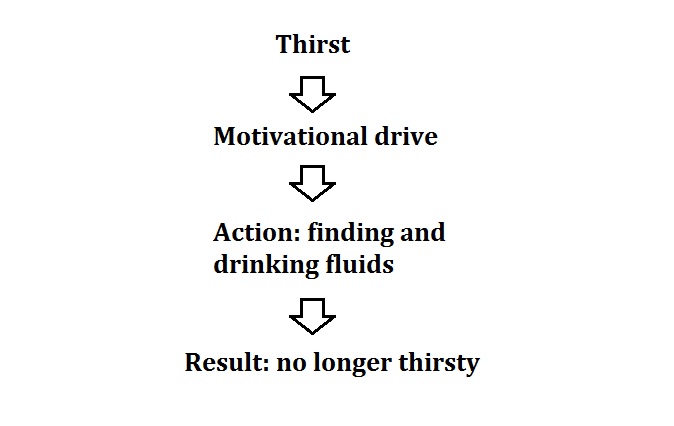
Drive theories of motivation are based on the concept of drives, which are hypothetical states of tension or discomfort that motivate (or ‘drive’) an organism to engage in behaviours that will maintain a state of physiological stability (homeostasis). The theories have been influential but also have limitations, in that they do not necessarily provide an adequate explanation for all types of behaviour. Examples are eating when we are not hungry, or engaging in activities such as skydiving. These behaviours are not easily explained in terms of correcting physiological instabilities.
The drive reduction theory presented by Clark L. Hull has arguably been the most influential drive theory of motivation.